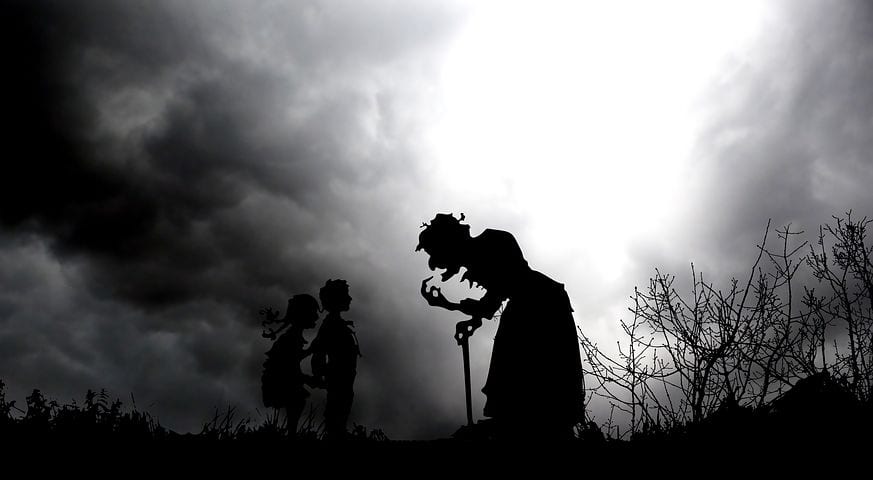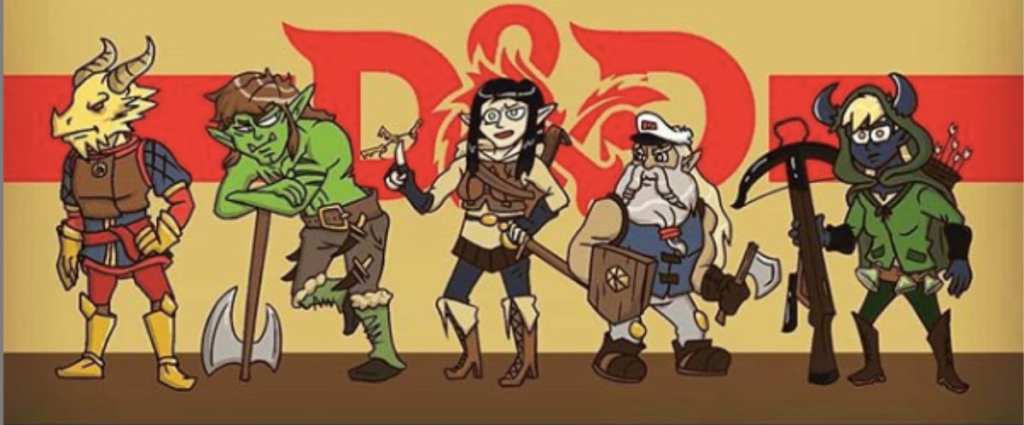File Under: Everything Old Is New Again
In the 1980s, the U.S. and Canada were experiencing a moral panic surrounding the tabletop game Dungeons & Dragons. Now the purview of series nerds everywhere, back then the game was tenuously connected to and blamed for a rash of teen suicides and even a few murders.
When D&D showed up in popular media, it was linked by reporters to things like Satanism, witchcraft, and the dark underbelly of youth culture.
Actually.
Below are 8 super nutty mentions of the game in 1980s media.
#8. Warnings of brimfire.
Sharon Sipos, a stay-at-home mother of two, believed D&D is more than a game – it’s an “alternate lifestyle” that can only be battled with the Lord at her side.
She spoke out against the game on 30 different radio and television programs.
“They’re always planning what they will do the next time. Kids have lost jobs, flunked out of school. They totally confuse reality and fantasy. It becomes their god.”
#7. Implicated in a murder-suicide.
The police working a tragic murder-suicide in late 1984 wondered whether D&D had something to do with the crime.
“My understanding is that once you reach a certain point where you are the master, your only way out is death. That way, no one can beat you.”
D&D had nothing to do with the crime – one of the brothers involved was facing a prison sentence and couldn’t face the idea of life in prison.
#6. A trend toward Satan.

Photo Credit: Pixabay
An article titled “Officers Offer Warning of Trend Toward Satanism” appeared in the Capital Times in 1990. It was written by Pamela Cotant and digs deep into potential Satanic or gang-related activity related to Wisconsin youth.
She describes “nocturnal youths” roaming the streets during her night shift and flashing symbols of Satan. And a local priest was quick to agree, stating that youths interested in Satanism tended to dabble in other crimes as well, like suicide, abuse, burglary, etc and that their secret activities could include games like D&D.
#5. Some serious warning labels.
In 1985, Knight-Ridder (a periodical) covered the crusade of the group BADD (Bothered About Dungeons & Dragons) to require that D&D come with warning labels. Dr. Thomas Radecki, a psychiatrist and chairman of the National Coalition on Television Violence, was cited as saying,
“Dungeons & Dragons is essentially a worship of violence. It’s a very intense war game. Talk to people that have played it. It’s very fascinating. It’s a game of fun. But when you have fun with murder, that’s dangerous. When you make a game out of war, that’s harmful. The game is full of human sacrifice, eating babies, drinking blood, rape, murder of every variety, curses of insanity. It’s just a very violent game.”
As anyone who plays the game can tell you, pretty much none of that is remotely accurate.
#4. An expansion of witches.

Photo Credit: Pixabay
An Oregon minister wondered in 1985 whether or not D&D was behind an increase in the local witch population.
Assuming there was one.
“Rev. Jon Quigley of the Lakeview Full Gospel Fellowship says he’s concerned about the game “Dungeons & Dragons…Players of the game, known to devotees as “D&D,” assume the roles of fantasy characters and pass through adventures to achieve some goal. There is a strong emphasis on magic.”
The minister went on to claim D&D “opens up young people to influence or possession by demons” and that there are “more than 600 full-fledged, practicing witches” in the immediate area.
He also wanted the game removed from schools because it “amounts to teaching a religion and violates the separation of church and state.”
Wow.
#3. A letter to the editor.
Also in 1985, a religious group in Springfield, IL, was trying to prevent AC/DC from performing a show. That, combined with a news segment on BADD and D&D, inspired the letter to the editor below:
Dear Editor,
This has been an interesting week. Sunday night I tuned into the tail end of “60 Minutes” and was confronted with some lady in a big flap about the game Dungeons and Dragons. I never did get her point — whether she wanted the game taken off the market or just wanted to publicly air her sorrow over the suicide of her son which she blames on D&D. I commiserate. Losing a teen or preteen child to suicide must be the most agonizing thing a parent can face. The rest I took with a grain of salt.
My younger son has played D&D since the third grade and it has never occurred to me to check him for suicidal tendencies. In the eight years he has been playing, I’ve spent close to $600 on books, modules, dice, lead figures and other accouterments of the game. I guarantee you, when I spend that kind of money I pay attention to what it’s all about. I’ve listened to many an hour of it. I don’t exactly see what they get out of it — it seems rather boring to me — but I’ve had games continue on the kitchen table for days and I fail to see the harm in it.
Two days later I hear on the radio that AC/DC cannot appear at the Prairie Capital Convention Center because the local clergy and a few concerned parents think their music promotes Satanism. Amazing! Now I suppose I’ll have to keep watch on my cats and the neighbors’ dog in case my sons decide to indulge in some of the more gory rites of Satanic sacrifices. After all, we have and play every AC/DC album that’s been cut.
I secretly wanted to go to the concert myself but really couldn’t because, first, I’d embarrass my kids to death, and, second, my eardrums can’t take the decibel level they could when I was 16. But if I did decide to go I surely wouldn’t do so in fear of my mortal soul — or my sons’. If people don’t want their kids to go, keep them home. Or if they don’t want them playing D&D, don’t buy the game. What has that to do with the rest of us? I think all this brouhaha is ridiculous.
Glenna Burns Beckner, Pleasant Plains [Illinois]
#2. An evil board game.
Even in 1986, people were trying to connect the violent nature of a game to the increasingly violent behavior exhibited by some teenagers. The answer to society’ problem was, of course, to restrict or ban the games in question.
You’re just going to want to read this Chicago Sun-Times article for yourself, but beware – they want to get rid of Monopoly, too.
#1. A chat with Satan.

Photo Credit: Wikimedia
An article published in the Richmond Times-Dispatch – “Game Said to Inspire Mind, Raise Satan” – is pretty amazing all on its own. It chronicles a group of parents and religious fundamentalists hellbent on saving their kids from a “satanical” game.
They believed the game “teaches Satan-worship, spell-casting, witchcraft, rape, suicide, and assassination.”
You gotta be pretty focused on all this terrible stuff in order to see it everywhere, don’t you think?






